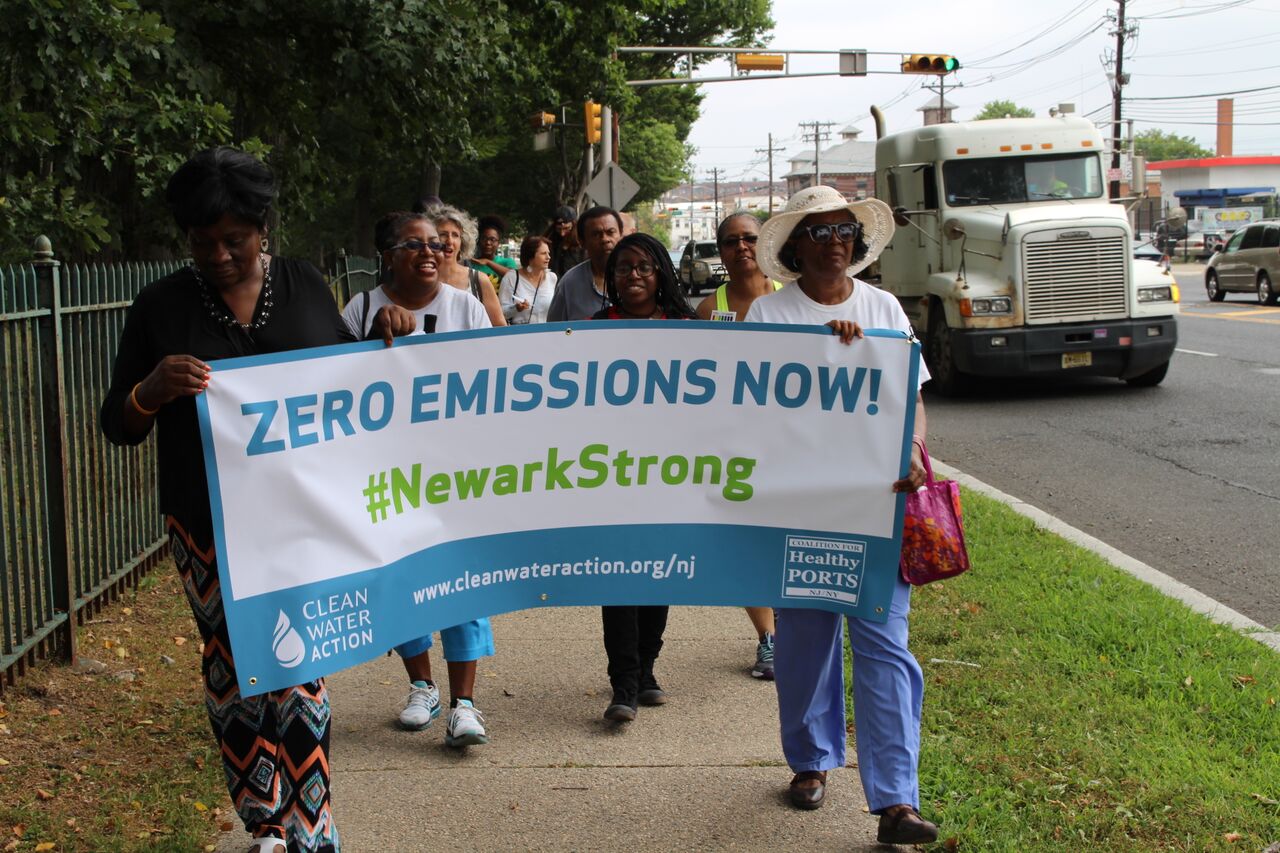
Last week, the Department of Environmental Protection, the Board of Public Utilities, and the Economic Development Authority released the final strategic plan for how to invest an estimated $80 million in funds expected from NJ’s participation in the Regional Greenhouse Gas Initiative (RGGI) auction this year. This year, New Jersey plans to invest 75% of the $80 million from RGGI in electrifying NJ’s transportation sector, 15% on the creation of a green bank, and the remaining 10% on carbon sequestration in forested and blue acre wetlands.
Amy Goldsmith, Clean Water Action’s State Director, responds:
“Given that over 40% of NJ’s greenhouse gases (GHG) originate from the transportation sector, it makes sense that much of the RGGI plan will focus there. We are encouraged that the state is committed to directing the lion’s share of the funds towards environmental justice (EJ) communities that have long borne the burdens of polluted air regardless of the source. Unfortunately, New Jersey missed out on the best opportunities to make a meaningful impact to do so when we withdrew from RGGI over a decade ago, but this is a positive step forward amidst a much larger battle.
These investments in cleaner transportation, while welcomed, are a drop in the bucket when compared to the $1.5 billion in funds raided from NJ’s Clean Energy Fund over the last decade that could have been invested in reducing climate pollutants, reducing pollution in EJ communities, and creating economic stimulus. This $80 million also pales in comparison to the $400 million in federal transportation funding being used to build a NJ Transit fracked gas plant in the Meadowlands and the $16 billion recently proposed in Turnpike and Parkway highway expansions. While modest RGGI investments in clean transportation are a positive development, New Jersey is spending billions of dollars on projects that will worsen the climate crisis and continue to burden EJ communities with air pollution.
The COVID-19 crisis highlights the urgency of addressing the public health risks resulting from pollution in EJ communities. Recently released research from Harvard University shows a direct link between exposure to black carbon (soot particles) and an increase in COVID-19 death rates. The greatest source of black carbon comes from diesel emissions. Port Newark and Elizabeth, the largest port on the East Coast, moves the region’s goods to warehouses, distribution centers, and markets by loading 18,000 trucks each and every day and even more trucks are on the road now making last mile deliveries because of the pandemic. The allocation of the RGGI funds to clean transportation is a good start, but we need our state to make a larger push towards electrification of our ports, trucks, and shipping.
Last week’s announcement to re-enter RGGI and secure funds through the auction is definitely long-awaited good news, but Clean Water Action will continue to push for additional funding and policies that will have a real impact on reducing pollution in low income communities, reducing our climate pollutant emissions, and more rapidly transitioning New Jersey to a clean energy economy.”